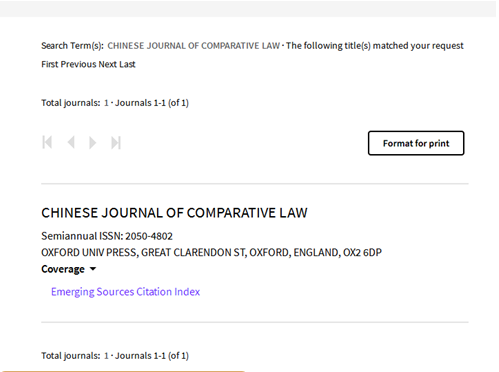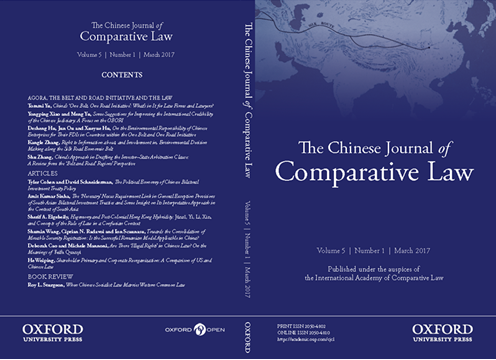Recently, The Chinese Journal of Comparative Law published by Oxford University press, sponsored by XJTU, was selected into The "Emerging Sources Citation Index (ESCI) database of Clarivate Analytics (original Thomson Reuters IP & Science). This is the second law publication to enter ESCI in China, and the first one to enter ESCI in our liberal arts. The inclusion marks the further international recognition of the academic quality and influence of The Chinese Journal of Comparative Law, laying a solid foundation for inclusion in the "social science citation index" (SSCI) database.

ESCI, a new international journal citation index database launched by Thomson Reuters in 2015, is a new subset included in core journals of Web of Science. ESCI maintains the same high quality standards as other subsets in the selection of publications, aiming to include influential publications in the region and high-quality publications in emerging disciplines. It provides an academic perspective on the latest or emerging research fields, which helps to understand the new trends of relevant academic research. Journal entry into ESCI database is a prerequisite for selection as SSCI database.
Established in 2013, The Chinese Journal of Comparative Law is the first comprehensive English law journal jointly established by Oxford University press and the Chinese academic community, and the first international professional journal of comparative law supported by the international academy of comparative law. The Chinese Journal of Comparative Law (CJCL) is an independent, peer-reviewed, general comparative law journal published under the auspices of the International Academy of Comparative Law (IACL) and in association with the Silk Road Institute for International and Comparative Law (SRIICL) at Xi’an Jiaotong University, PR China. CJCL aims to provide a leading international forum for comparative studies on all disciplines of law, including cross-disciplinary legal studies. It gives preference to articles addressing issues of fundamental and lasting importance in the field of comparative law.
